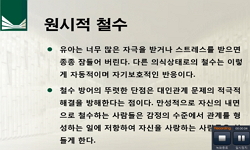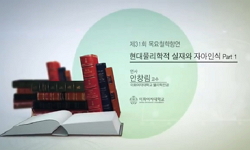한국 근대 초기, 문학 장에서 ‘자아의 발견’은 사회를 바꾸려는 계몽의 언어에 반발하는 태도로 비추어진다. 집단에 대한 한 명의 사람, 다수가 참여하는 운동에 둘러싸인 개인의 사유는 ...
http://chineseinput.net/에서 pinyin(병음)방식으로 중국어를 변환할 수 있습니다.
변환된 중국어를 복사하여 사용하시면 됩니다.
- 中文 을 입력하시려면 zhongwen을 입력하시고 space를누르시면됩니다.
- 北京 을 입력하시려면 beijing을 입력하시고 space를 누르시면 됩니다.

근대 문학의 낭만과 미숙의 문제-형용사 ‘어린’을 중심으로- = The problem of romance and inexperiencein modern literature-targeting the adjective ‘young’-
한글로보기https://www.riss.kr/link?id=A108857616
-
저자
장보미 (고려대학교)
- 발행기관
- 학술지명
- 권호사항
-
발행연도
2023
-
작성언어
Korean
-
주제어
modern literature ; romance. enlightenment ; inexperience ; young ; 근대시 ; 낭만 ; 계몽 ; 자아 ; 미숙 ; 어린
-
등재정보
KCI등재
-
자료형태
학술저널
-
수록면
183-206(24쪽)
- 제공처
-
0
상세조회 -
0
다운로드
부가정보
국문 초록 (Abstract)
한국 근대 초기, 문학 장에서 ‘자아의 발견’은 사회를 바꾸려는 계몽의 언어에 반발하는 태도로 비추어진다. 집단에 대한 한 명의 사람, 다수가 참여하는 운동에 둘러싸인 개인의 사유는 행위의 크기 면에서 한낱 점에 가까운 것이나 다름없었다. 거대 체계의 지배 앞에서 계몽의 문제는 개인에게 직접 행동을 지시할 뿐 그것을 이해 가능한 것으로 상정하지는 않는다. 폭력에 가까운 힘 앞에서 개인의 마음은 집단행동에 앞선 순위를 차지할 수 없었다. 계몽이 개인의 사유와 대치되는 양상으로 해석, 분류된 까닭은 여기에 있다. 문제 해결을 위한 효율성 앞에서 작은 감정은 중요하지 않은 것으로 취급되었다. 그러나 문학의 범주 안에서 각종 선전에 둘러싸인 주체의 말은 아무리 내면의 내면으로 도피하려 해도 계몽의 영향에서 벗어날 수 없었다. 문학 주체는 홀로 바꿀 수 없는 세계에 대응하기 위하여 스스로 인정의 언술 체계를 만들고자 한다. ‘나는 누구이고 어디에서 무엇을 해야 하는가’의 자기인지는 세계의 혼란을 이해함으로써 발생한다. 윤리적 사유는 당위의 세계에 대한 인정 욕구로서 표시된다. 이 연구는 불안한 세계 앞에서 자기 온전함과 효능을 찾고자 하는 문학 주체의 태도에 주목한다. 현재의 서술 주체인 ‘나’는 하나의 장면 안에 어린 대상을 표출함으로써 자신의 서사를 압축한다. 그는 오늘의 상황이나 감정보다 덜 모호한 상태의 자기 과거를 추적함으로써 현존재의 정당성을 확보하고자 한다. 그러나 회상 속 어린 대상은 ‘현재의 내가 되기까지’ 완성되지 못한 결핍의 정서를 내포한다. 내력 속 자기 결핍을 관찰함으로써 시작된 주체의 성찰 행위는 태도로서의 계몽을 지향한다. 이 과정에서 아동은 무지몽매한 대상으로 굳어진다.
다국어 초록 (Multilingual Abstract)
In the early modern days of Korea, the discovery of the self is reflected in an attitude against the language of enlightenment to change society. The individual’s thoughts surrounded by a movement in which the majority participated in the group do n...
In the early modern days of Korea, the discovery of the self is reflected in an attitude against the language of enlightenment to change society. The individual’s thoughts surrounded by a movement in which the majority participated in the group do not have much impact. Under the dominance of a large system, the issue of enlightenment only directly instructs individuals to act, but does not assume it as understandable. In the forces close to violence, Individual minds could not rank ahead of collective action against the forces just as a violence. This is why enlightenment was interpreted and classified as a confrontation with individual thinking. In terms of the efficiency of problem-solving, small emotions were treated as insignificant lightweight. However, within the field of literature, the words of the subject surrounded by various propaganda cannot escape the influence of enlightenment no matter how much he tries to escape to his inner self. Rather, literary subjects want to make themselves sound in the category of recognition that can change the world at the individual level. The exploration of “Who am I and where and what to do” comes from an attitude to understand the world and to feel self-integration and efficacy from it. Ethical reasons are expressed as a desire for recognition. This study begins with the recognition of the attitude of this literary subject. Individuals have never ruled out the world. The inner exploration of the subject prominent in modern literature begins by assuming ‘I’ as an object of observable state. In particular, ‘I’ is a literary narrative and is represented as a young object in the scene. This is because the subject living in the real world intends to review the situation that has already ended. The method of tracking one’s past is clear in the intervention of subjectivity. However, it can be less ambiguous than the current situation or emotions in that there is a starting and ending point of the narrative. The young needs care, However, due to the circumstances beyond the control, this young object has a feeling of deprivation until he or she becomes the present I. The reflection begins by observing self-deficiency. This presents the enlightenment as an attitude rather than as a behavior. The ignorance of young objects is represented by gradual inexperience to elicit reflection along with individual self-exploration.
동일학술지(권/호) 다른 논문
-
- 인하대학교 한국학연구소
- 와타나베나오키
- 2023
- KCI등재
-
- 인하대학교 한국학연구소
- 오선화 ( Wu Xianhua )
- 2023
- KCI등재
-
- 인하대학교 한국학연구소
- 이승희 ( Lee Seunghee )
- 2023
- KCI등재
-
- 인하대학교 한국학연구소
- 고재봉 ( Ko Jaebong )
- 2023
- KCI등재




 KCI
KCI KISS
KISS






